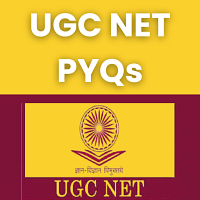UGC NET Exam > UGC NET Questions > The immigrating ethnic cultural groups which ...
Start Learning for Free
The immigrating ethnic cultural groups which never get opportunity to become citizens under multiculturalism are called:
- a)Metics
- b)National minorities
- c)Immigrant groups
- d)Isolationist ethno-religious groups
Correct answer is option 'A'. Can you explain this answer?
| FREE This question is part of | Download PDF Attempt this Test |
Most Upvoted Answer
The immigrating ethnic cultural groups which never get opportunity to ...
The term multiculturalism was initially used in Canada in 1965 to indicate a unique method of dealing with cultural diversity.
- In contemporary political discourse and philosophy, the concept of multiculturalism reflects a debate about how to understand and respond to the challenges of cultural diversity based on ethnic, national, and religious distinctions.
- A multiculturalist viewpoint suggests a positive affirmation of communal diversity, based on other cultural groups' right to acknowledgement and respect.
- It incorporates a variety of viewpoints on the implications of expanding cultural diversity, particularly how cultural diversity can be reconciled with civic unity.
- The central topic of multiculturalism is diversity within unity.
- Metics are those the immigrating ethnic cultural groups who never get the opportunity to become citizens.
- Metics come from the Greek word Metoikos which means any resident immigrant, including liberated slaves.
Thus, The immigrating ethnic cultural groups which never get opportunity to become citizens under multiculturalism are called Metics.
Free Test
FREE
| Start Free Test |
Community Answer
The immigrating ethnic cultural groups which never get opportunity to ...
Metics
Metics are the immigrating ethnic cultural groups who never get the opportunity to become citizens under multiculturalism. This term comes from ancient Greek society where metics were foreign residents who were not granted the full rights of citizenship.
Reasons for not becoming citizens
- Metics may face legal barriers to obtaining citizenship, such as strict immigration laws or discriminatory policies.
- They may also face social barriers, such as prejudice and discrimination from the majority population.
- Metics may have limited access to resources, education, and opportunities that are necessary for citizenship.
Challenges faced by Metics
- Metics often live on the margins of society, facing social and economic challenges.
- They may struggle to maintain their cultural identity while facing pressure to assimilate into the dominant culture.
- Metics may also experience feelings of alienation and exclusion from the broader society.
Impact of not becoming citizens
- Without citizenship, metics may face limited legal protections and rights.
- They may also have restricted access to healthcare, education, and employment opportunities.
- Not being able to become citizens can contribute to feelings of marginalization and inequality within society.
In conclusion, metics are a disenfranchised group within multicultural societies who face significant challenges and barriers to full participation and inclusion. It is important for policymakers and society as a whole to address these issues and work towards greater equality and social justice for all individuals, regardless of their cultural background.
Metics are the immigrating ethnic cultural groups who never get the opportunity to become citizens under multiculturalism. This term comes from ancient Greek society where metics were foreign residents who were not granted the full rights of citizenship.
Reasons for not becoming citizens
- Metics may face legal barriers to obtaining citizenship, such as strict immigration laws or discriminatory policies.
- They may also face social barriers, such as prejudice and discrimination from the majority population.
- Metics may have limited access to resources, education, and opportunities that are necessary for citizenship.
Challenges faced by Metics
- Metics often live on the margins of society, facing social and economic challenges.
- They may struggle to maintain their cultural identity while facing pressure to assimilate into the dominant culture.
- Metics may also experience feelings of alienation and exclusion from the broader society.
Impact of not becoming citizens
- Without citizenship, metics may face limited legal protections and rights.
- They may also have restricted access to healthcare, education, and employment opportunities.
- Not being able to become citizens can contribute to feelings of marginalization and inequality within society.
In conclusion, metics are a disenfranchised group within multicultural societies who face significant challenges and barriers to full participation and inclusion. It is important for policymakers and society as a whole to address these issues and work towards greater equality and social justice for all individuals, regardless of their cultural background.
Attention UGC NET Students!
To make sure you are not studying endlessly, EduRev has designed UGC NET study material, with Structured Courses, Videos, & Test Series. Plus get personalized analysis, doubt solving and improvement plans to achieve a great score in UGC NET.

|
Explore Courses for UGC NET exam
|

|
Similar UGC NET Doubts
The immigrating ethnic cultural groups which never get opportunity to become citizens under multiculturalism are called:a)Meticsb)National minoritiesc)Immigrant groupsd)Isolationist ethno-religious groupsCorrect answer is option 'A'. Can you explain this answer?
Question Description
The immigrating ethnic cultural groups which never get opportunity to become citizens under multiculturalism are called:a)Meticsb)National minoritiesc)Immigrant groupsd)Isolationist ethno-religious groupsCorrect answer is option 'A'. Can you explain this answer? for UGC NET 2024 is part of UGC NET preparation. The Question and answers have been prepared according to the UGC NET exam syllabus. Information about The immigrating ethnic cultural groups which never get opportunity to become citizens under multiculturalism are called:a)Meticsb)National minoritiesc)Immigrant groupsd)Isolationist ethno-religious groupsCorrect answer is option 'A'. Can you explain this answer? covers all topics & solutions for UGC NET 2024 Exam. Find important definitions, questions, meanings, examples, exercises and tests below for The immigrating ethnic cultural groups which never get opportunity to become citizens under multiculturalism are called:a)Meticsb)National minoritiesc)Immigrant groupsd)Isolationist ethno-religious groupsCorrect answer is option 'A'. Can you explain this answer?.
The immigrating ethnic cultural groups which never get opportunity to become citizens under multiculturalism are called:a)Meticsb)National minoritiesc)Immigrant groupsd)Isolationist ethno-religious groupsCorrect answer is option 'A'. Can you explain this answer? for UGC NET 2024 is part of UGC NET preparation. The Question and answers have been prepared according to the UGC NET exam syllabus. Information about The immigrating ethnic cultural groups which never get opportunity to become citizens under multiculturalism are called:a)Meticsb)National minoritiesc)Immigrant groupsd)Isolationist ethno-religious groupsCorrect answer is option 'A'. Can you explain this answer? covers all topics & solutions for UGC NET 2024 Exam. Find important definitions, questions, meanings, examples, exercises and tests below for The immigrating ethnic cultural groups which never get opportunity to become citizens under multiculturalism are called:a)Meticsb)National minoritiesc)Immigrant groupsd)Isolationist ethno-religious groupsCorrect answer is option 'A'. Can you explain this answer?.
Solutions for The immigrating ethnic cultural groups which never get opportunity to become citizens under multiculturalism are called:a)Meticsb)National minoritiesc)Immigrant groupsd)Isolationist ethno-religious groupsCorrect answer is option 'A'. Can you explain this answer? in English & in Hindi are available as part of our courses for UGC NET.
Download more important topics, notes, lectures and mock test series for UGC NET Exam by signing up for free.
Here you can find the meaning of The immigrating ethnic cultural groups which never get opportunity to become citizens under multiculturalism are called:a)Meticsb)National minoritiesc)Immigrant groupsd)Isolationist ethno-religious groupsCorrect answer is option 'A'. Can you explain this answer? defined & explained in the simplest way possible. Besides giving the explanation of
The immigrating ethnic cultural groups which never get opportunity to become citizens under multiculturalism are called:a)Meticsb)National minoritiesc)Immigrant groupsd)Isolationist ethno-religious groupsCorrect answer is option 'A'. Can you explain this answer?, a detailed solution for The immigrating ethnic cultural groups which never get opportunity to become citizens under multiculturalism are called:a)Meticsb)National minoritiesc)Immigrant groupsd)Isolationist ethno-religious groupsCorrect answer is option 'A'. Can you explain this answer? has been provided alongside types of The immigrating ethnic cultural groups which never get opportunity to become citizens under multiculturalism are called:a)Meticsb)National minoritiesc)Immigrant groupsd)Isolationist ethno-religious groupsCorrect answer is option 'A'. Can you explain this answer? theory, EduRev gives you an
ample number of questions to practice The immigrating ethnic cultural groups which never get opportunity to become citizens under multiculturalism are called:a)Meticsb)National minoritiesc)Immigrant groupsd)Isolationist ethno-religious groupsCorrect answer is option 'A'. Can you explain this answer? tests, examples and also practice UGC NET tests.

|
Explore Courses for UGC NET exam
|

|
Suggested Free Tests
Signup for Free!
Signup to see your scores go up within 7 days! Learn & Practice with 1000+ FREE Notes, Videos & Tests.
























